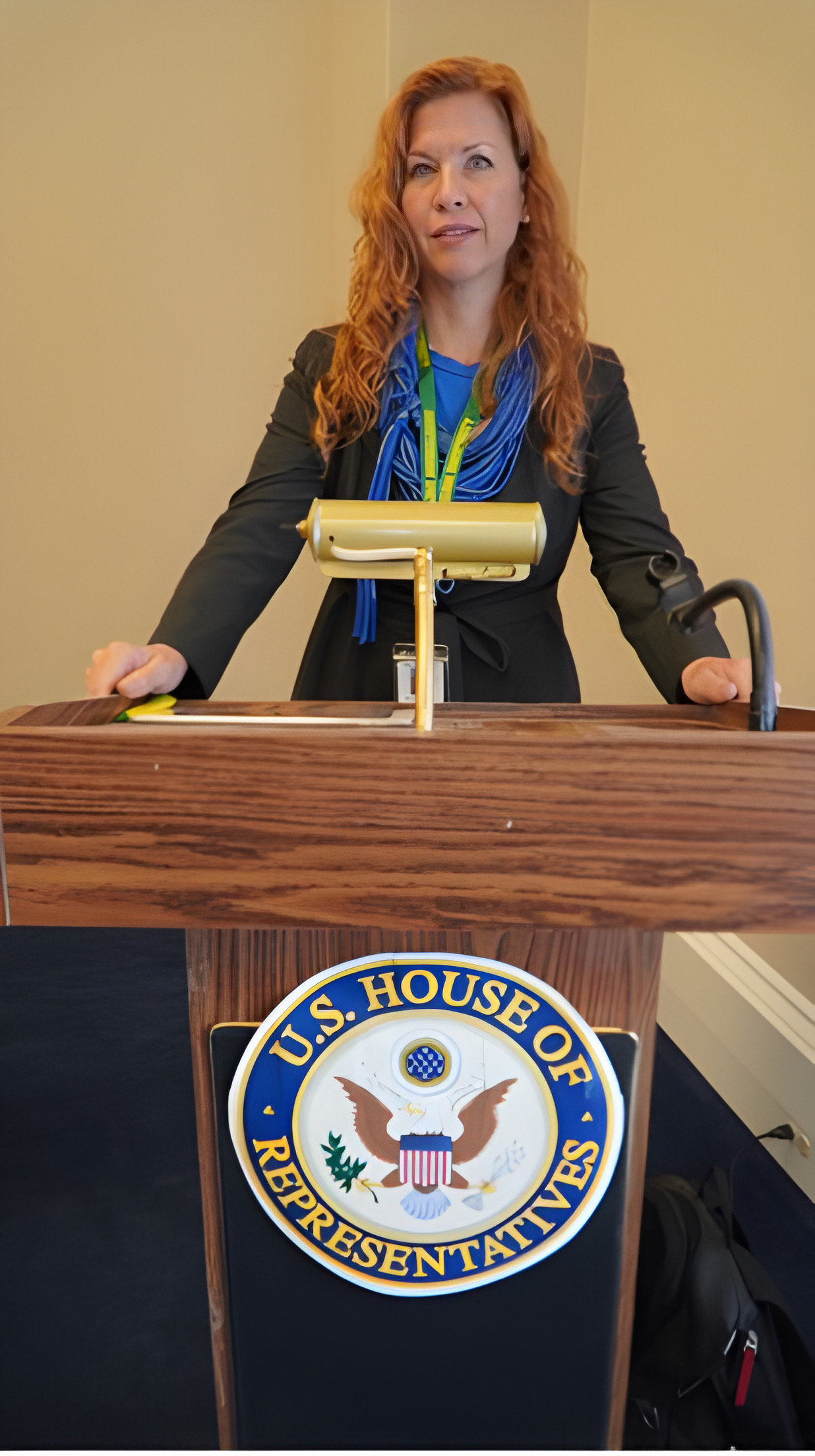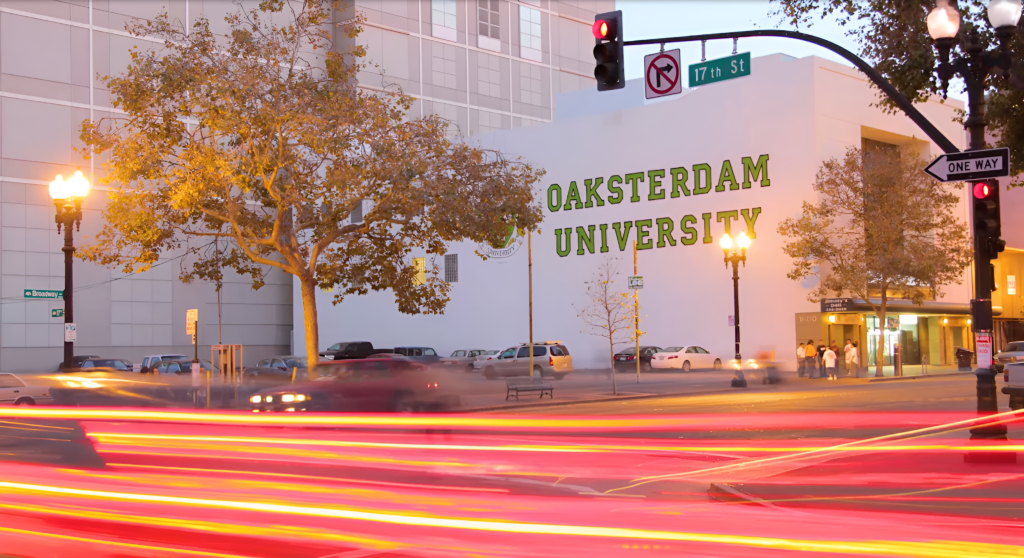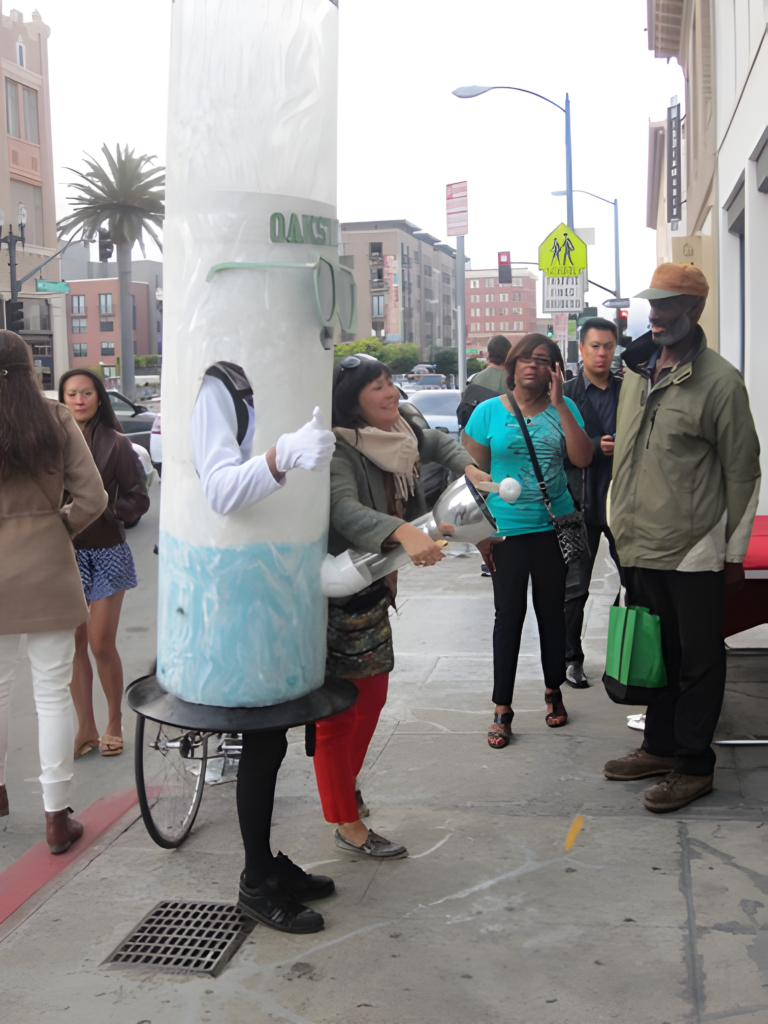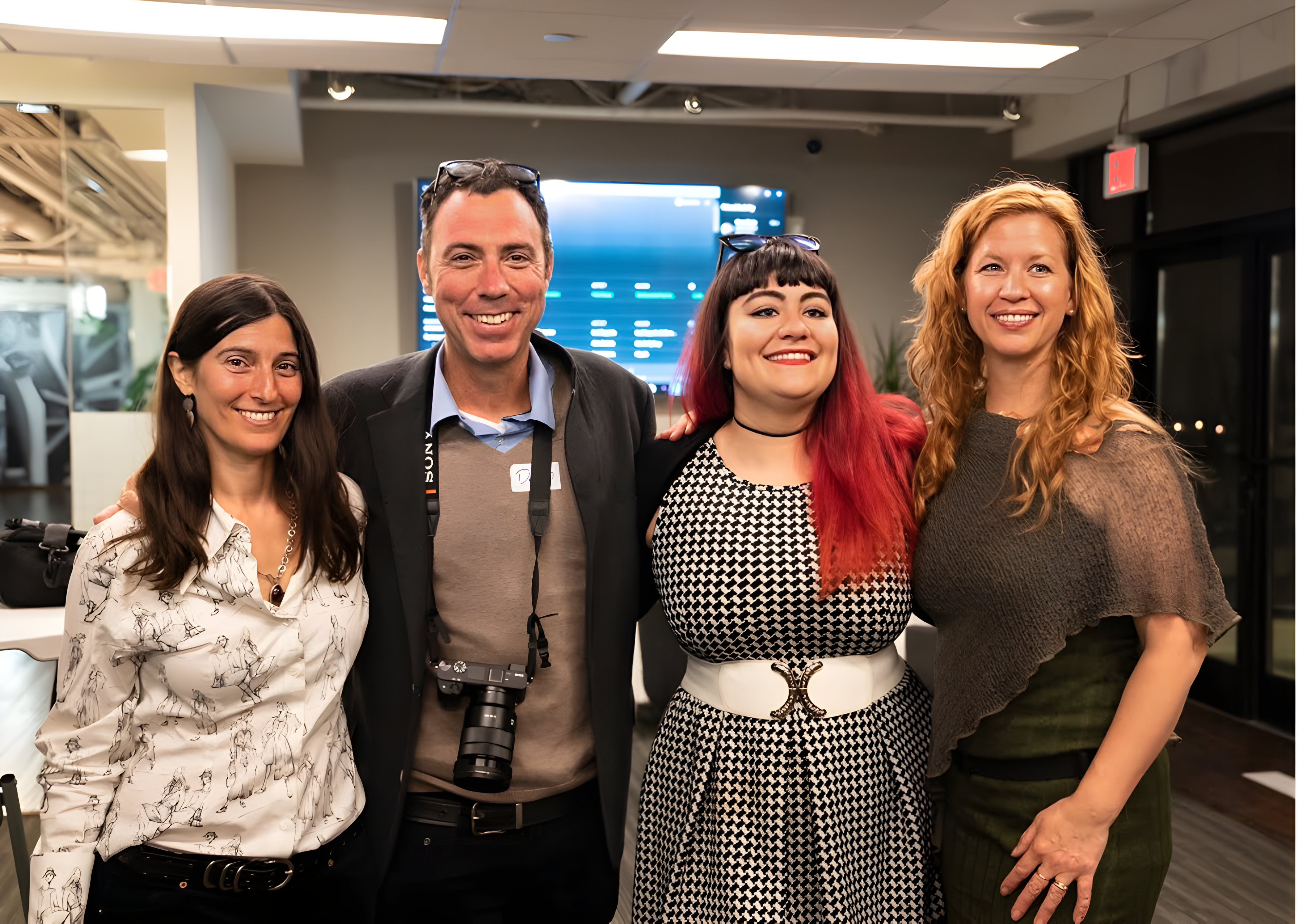I’ve always been annoyed by the way the cannabis industry honors “legacy growers” as the ultimate source of authority on cannabis cultivation and culture, because the term always seems to refer to arrogant (often sexist) white men who pride themselves on being “outlaws” with an expert knowledge of cannabis cultivation that is more or less inaccessible to others. (I’m a Jewish woman who loves to grow weed; I don’t take kindly to any dude telling me there’s something I can’t do).
After watching American Pot Story: Oaksterdam—the entrancing, award-winning documentary by Israeli filmmakers Ravit Markus and Dan Katzir—I realized that what had annoyed me was a certain version of legacy culture (as portrayed, for example, in the documentary Murder Mountain) that excluded the stories of the queer, disabled, traumatized visionaries who paved the way for the legalization of adult-use cannabis.

Markus and Katzir spent a decade following cannabis activists Richard Lee and Dale Sky Jones, and their intimate documentary captures the energy and tension of their state-wide campaign to pass Proposition 19 in California—the first measure to legalize recreational cannabis in the United States. Lee is a saavy businessman who transformed a few blocks in Oakland into their own “Amsterdam” with dispensaries and coffee shops, and created the first trade school for cannabis cultivation, “Oaksterdam University,” all before he decided to organize a campaign to get Prop 19 on the ballot and provoke the federal government even more.
Dale Sky Jones had been serving as the Executive Chancellor of Oaksterdam University and then became the official spokesperson of the historic campaign to legalize cannabis. Although the film highlights the diversity of the Oakland cannabis scene, it’s still thrilling to hear Jones bluntly state: “You needed a crazy guy in a wheelchair and a pregnant redhead to change the world.” Amen.

As I started watching the film, I wondered how long I could hear about Richard Lee, the mild-mannered, business-oriented, disabled cannabis activist who spent all of his money funding Prop 19 before I googled: “Is Richard Lee Jewish?” (answer: 10 minutes). I should have waited, as his Catholic, Conservative Republican mother makes an unforgettable appearance later in the film. My reason for suspecting that he’s Jewish is that—like all of the OG Cannabis Jews— Lee is devoted to education, equal access, and the legalization of cannabis rather than personal gain.
The other reason I wondered if he’s Jewish is because he has a brilliant, neo-Marxist approach to business that could also describe why most of us get into this industry: “my activism is done through business. Business is part of my activism, not the other way around.” For Lee, running a cannabis business in the open, despite the law, was civil disobedience necessary to create the momentum for legalization. It was Lee’s bravery and extraordinary chutzpah—rather than the legacy growers hiding from the government—that played a pivotal role in the movement to legalize and increase access to cannabis.

Lee is a fascinating character, but the star of the film is Dale Sky Jones, whose poignant story of trauma, resilience and cannabis advocacy did—at one particularly raw moment—make me cry, as she conveys how her activism is interwoven with her recovery and with a woman’s right to self-determination. It’s the sort of connection that can only be felt in that moment of the film, rather than described. One of the greatest strengths of American Pot Story is how it recovers the queer, disabled, and Jewish voices that loudly advocated for Oaksterdam University and played a pivotal role in the grassroots effort to normalize the use of cannabis.

In particular, I felt proud when I saw the prominent roles played by Oakland Mayor Libby Schaaf and Council member-at-large Rebecca Kaplan in supporting and defending this movement, who bring all the #JewishWomanEnergy you can possibly imagine to advocating for the right of Oakland residents to get high.
It was comforting to identify with this community, and learn about a different side of legacy culture that included my tribe of loud, queer Jewish women who keep it real. More than an exceptional documentary, American Pot Story recovers forgotten heroes of the legalization movement that change the story you think you know and offer an alternative model for activism, community and cannabis culture that prioritizes the wellbeing of marginalized groups.

The next screening of American Pot Story: Oaksterdam (New Love Films) will be at the Saint Augustine Film Festival (SAFF) on Sunday, January 14, 2024.
RAVIT MARKUS
Producer, Director
Ravit Markus’s previous documentary features include the critically-acclaimed Yiddish Theater: A Love Story which she wrote and produced. It became a cultural phenomenon when it commercially played in theaters in Los Angeles, New York and Tel Aviv for months garnering raving reviews in the NY Times, LA Times, and the NY Magazine, and was voted one of the top 10 documentaries of 2007 in About.com. Markus co-produced Jewish Film Festivals’ darling Rock in the Red Zone by Laura Bialis, and produced the Channel 4 UK documentary Porn Shutdown which aired worldwide and received excellent reviews in The Guardian and the London Time Out. Markus is a graduate of the Film and TV Department at Tel Aviv University. In her mandatory army service in Israel she served in the video unit of the Education Corps.
DAN KATZIR
Writer, Director
Dan Katzir’s films have won dozens of international awards in the US, Europe and Asia and were nominated for the Israeli Academy Award. His films have played in hundreds of film festivals and have been shown on multiple networks around the world including HBO in the US, channel 4 in the UK and France 2, to name a few. Before becoming a filmmaker, Katzir served as a combat soldier and an officer in the Israeli paratroopers. He graduated magna cum laude from the Film and TV Department at Tel Aviv University and received his MFA from the American Film Institute in Hollywood. A WGAW member, Katzir currently lives in Los Angeles with his wife, filmmaker Ravit Markus, and their son.






